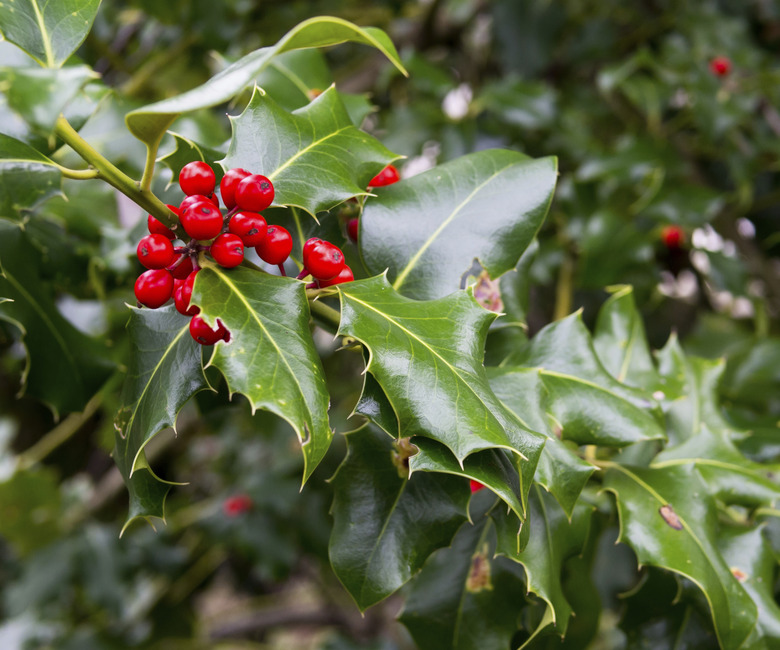Is Holly Poisonous To Dogs?
It's time to deck the halls! Which means that holly will soon be everywhere! Holly is a well-known evergreen shrub featured in gardens all over the country. It is also a ubiquitous symbol of the Christmas season, in song, on cards and even woven into garlands that make their way onto fireplace mantels in many homes. If you're planning on decorating your home with live holly plants, you should take care to make sure they are secure and out of reach of your pet, since they are toxic to dogs.
Toxicity
Toxicity
Holly is toxic to dogs, reports the U.S. Food and Drug Administration. Yes, it is a lovely decoration in the garden and in the home, but certain chemicals in holly, called ilicin, saponins, and methylxanthines, make both the leaves and the berries toxic to dogs. A dog can eat up to five berries with relatively minor effects. If your dog consumes larger quantities of berries, it may need medical attention.
Symptoms
Symptoms
The leaves and the berries of both American Holly and English Holly can be toxic to humans and to their pets. While they are not highly toxic, both leaves and berries will cause your dog to drool excessively or experience upset stomach, diarrhea, appetite loss, or depression if eaten in large amounts. In most cases, dogs that consume holly will not die due to poisoning, but if your dog is in extreme distress, you should call your veterinarian immediately. It is important to note that similar symptoms can occur if your dog eats other holiday plants, such as poinsettia and mistletoe. Immediately bring your dog to the vet if you have more than one variety of holiday plant in the house and are uncertain as to what plant might be causing your dog's symptoms. Mistletoe can cause more serious symptoms in your dog and, according to Apple Lake Animal Hospital, may require "decontamination and cardiovascular monitoring" if enough mistletoe is ingested.
Treating Pets That Have Eaten Holly
Treating Pets That Have Eaten Holly
According to the Apple Lake Animal Hospital, if caught quickly enough, toxicity caused by eating holly leaves can be treated at home with relative ease. Early treatment involves fluid therapy: replacing the fluids lost through vomiting and diarrhea. Keep a close eye on your pet until it recovers fully. Call your pet's veterinarian to determine if it is necessary to bring your pet into the office before beginning home treatment or if its condition worsens.
Keep Your Pets Safe During the Holidays
Keep Your Pets Safe During the Holidays
The best way to avoid all of this? Simple: Place holly berries and leaves outside to keep them out of your pet's reach. Inside the home, use artificial holly leaves and berries in holiday decorations. If you must use the real plant in your decorations, make sure you keep it high on the mantle or on top of another tall piece of furniture.
Always check with your veterinarian before changing your pet's diet, medication, or physical activity routines. This information is not a substitute for a vet's opinion.
